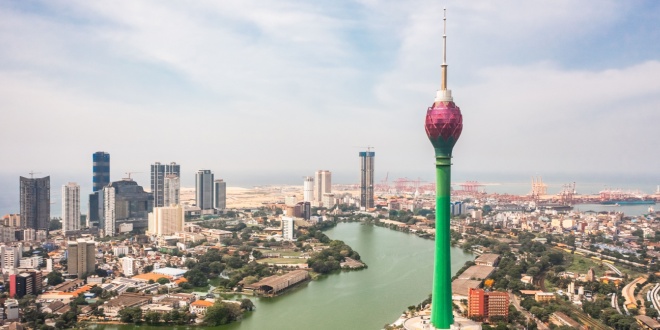
Sri Lanka’s government is moving to liberalise the country’s betting and gaming laws with new legislation launched in parliament this week.
Sri Lankan media outlets report that the government announced the draft bill, named the Gambling Sports Regularization Act, on 21 April.
The main stipulation of the bill will be the creation of a Gambling Regulation Authority tasked with regulating the entirety of Sri Lankan gambling, including both retail and online, as well as offshore companies.
“The Gambling Sports Regularisation Act has received the clearance of the Attorney General and the draft Bill will now be published in the Government Gazette before being submitted to Parliament for approval,” said Dr. Nalinda Jayatissa, Minister of Health and Mass Media and Cabinet Spokesperson, as reported by Sri Lankan news outlet Daily FT.
Dr Jayatissa added: “The proposed authority will serve as the sole national regulator with a broad mandate, covering areas such as offshore gambling sports on ships and in the Colombo Port City, online gambling platforms and offshore casinos.”
Sri Lanka’s regulation of gambling is, as in its neighbour across the ocean to the north in India, a highly fragmented landscape. For the most part, gambling is strictly illegal with a few exceptions.
The main form of legal gaming in Sri Lanka is the national lottery, run by the National Lotteries Board and in operation since 1963. The lottery consists of the usual draw games seen across other countries’ lotteries, along with scratch cards and instant win games.
Physical casinos are highly restricted and can only be opened with permission from the government, with the executive and judicial capital and largest city of Colombo being the location of the vast majority of the country’s casinos. This includes the likes of Bally’s Casino, active since 1995.
Sports betting is a little more complicated, with the only form of wagering allowed being on horse racing, and this is further limited to only being allowed at on-course bookies, such as at the Royal Turf Club, located in the central city of Nuwara Eliya.
Betting on all other sports remains highly illegal, and online gambling of any sort – whether on sports, horse racing or at online casinos – is strictly prohibited, Like other markets in Asia and further affiled, however, Sri Lanka has been targeted extensively by overseas gaming companies, both those licensed in other nations and completely illegal ones.
The government’s move to better regulate Sri Lankan gambling with a new central body seems to be part of a wider wind of change seen across South and Southeast Asia in recent months.
Earlier this month, the government of the Indian state of Karnataka told media that the state was considering regulating betting and had been engaging with the industry on this. This would make the jurisdiction the fourth out of India’s 28 states and eight union territories to launch a regulated betting and gaming market, joining Goa, Daman, and Sikkim.
Meanwhile, Thailand is also moving forward with plans to launch legal casinos in the country as part of a push to further diversify its already extensive entertainment and tourism sector.
However, this legislative proposal has faced hurdles, with domestic opposition citing potential societal impacts, while the escalating tariff trade war between the US and China has also provided an external challenge to overcome.
Looking back to Sri Lanka, while the bill mainly concerns the creation of a central government gambling regulator, it could spell further liberalisations further down the line, perhaps even the launch of online betting as seen in other emerging markets like Brazil.
As with reform advocates in the likes of Brazil, Norway and Finland, among others, proponents of Sri Lankan gaming law reform want to see greater taxation of the industry, better player protection, sports integrity protection, and a curbing of the targeting of Sri Lankans by unlicensed offshore companies, among other factors.
Also, change to betting of laws is of course not concrete. The bill still needs to be subjected to scrutiny from the 225 MPs of Sri Lanka’s parliament in the legislative capital city of Sri Jayawardenepura Kotte, a process which – like all legislative processes – could see significant changes and dilutions.